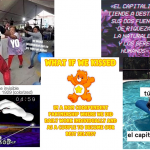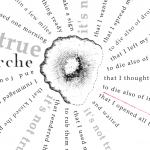electropoetics
“Decolonize” E-Literature? On Weeding the E-lit Garden

Berens asks: Should the e-literature community include third-generation works in collections, syllabi, databases, prizes? A related question: do third-gen makers have a role in “decolonizing” e-literature? Who or what “colonizes” e-lit? E-literature, like earlier avant gardes, began as a coterie and has become a scholarly field. Using the comparison of a field versus a walled garden, the essay examines critiques of e-literature and variations on field definitions. It ends with two ideas about how to "decolonize" e-literature; about how equity and inclusion work in tandem with decolonization, but are not the same thing; and why decolonization efforts are urgent in the context of pandemic and protests supporting Black lives and racial justice.
Smart Technology Instead of Blood and Soil

A critique of Third Generation, web based electronic literature from a first generation maker and author of "The Moving Word" (2000), Janez Strehovic.
Image from Olia Lialina's Ann Karenin Goes to Paradise
Pitching the Poem-essay: Subversive Argument in the Work of Charles Bernstein

Circularity, performativity, authorial intervention, digressions, interruptions, collage, segmentation, prolific examples, line breaks and humor: Hazel Smith brings each of these approaches and stances to bear on Charles Bernstein's poetic essays and essayistic poetry. In the spirit of which, Smith presents her own essay in parallel sections. The main column advances her critical argument, while the second discontinuous column presents a "Deep Text" generated by Roger Dean, who applied the computer platform Python to word sequences from Smith's first column.
image: Charles Bernstein
Is Third Generation Literature Postweb Literature? And Why Should We Care?

Alex Saum-Pascual on e-lit's relocation to platforms with massive user bases, and the beauty of meh.
Grappling With the Actual: Writing on the Periphery of the Real

Like many of the "Artistic Reflections" featured in the Cork 2019 e-lit conference, Carpenter's opens out from her own web based works to a "post-digital world, in which invisible layers of data inform our daily thoughts and actions; a post-human world, of vast oceans and ceaseless winds."